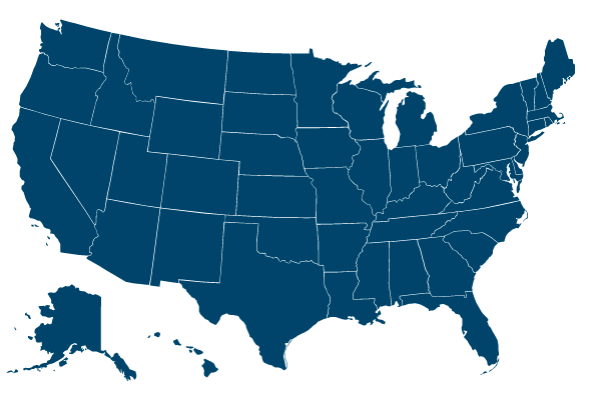Governments do much better at providing many services than private companies do, for the simple reason that private companies have incentives incompatible with the services. Bruce Schneier points out a shining example, nuclear security:
We can learn a lot about the potential for safety failures at US nuclear plants from the July 29, 2012, incident in which three religious activists broke into the supposedly impregnable Y-12 facility at Oak Ridge, Tennessee, the Fort Knox of uranium. Once there, they spilled blood and spray painted “work for peace not war” on the walls of a building housing enough uranium to build thousands of nuclear weapons. They began hammering on the building with a sledgehammer, and waited half an hour to be arrested. If an 82-year-old nun with a heart condition and two confederates old enough to be AARP members could do this, imagine what a team of determined terrorists could do.
Instead of having government forces guard the site, the Department of Energy had hired two contractors: Wackenhut and Babcock and Wilcox. Wackenhut is now owned by the British company G4S, which also botched security for the 2012 London Olympics, forcing the British government to send 3,500 troops to provide security that the company had promised but proved unable to deliver. Private companies are, of course, driven primarily by the need to make a profit, but there are surely some operations for which profit should not be the primary consideration.
Corporate structures also contribute to making this kind of operation unprofitable. If someone steals fissile material from Oak Ridge and blows up Toledo with it, the biggest liability Wackenhut or B&W would face is bankruptcy and dissolution. The shareholders won't go to jail; probably not even the managers responsible for putting profit above nuclear security would, either.
But the Army and the Department of Energy have no such profit incentive, and therefore have no incentives to cut corners or rely on broken technology. Instead they have incentives to do their jobs well, and protect Americans.
Government isn't a business. I hope someday more people understand this, and I hope more that it doesn't take a nuclear disaster to prove it.
For a wildly successful heath care regime:

What’s amazing about this is that the good news about Obamacare isn’t really debatable. It’s a simple fact that there has been a stunningly rapid drop in the number of uninsured, coming from multiple independent sources. It’s also a simple fact that outlays on Medicaid and exchange subsidies are coming in well below projections.
You can argue that this is all temporary — that premiums will eventually skyrocket even though they haven’t yet, that the predicted death spiral will come back from the er, dead. But Obamacare is, by any measure, doing better so far than even its supporters expected.
Of course, in the data-free zone of the Republican Party, this simple truth isn't even understood, let alone understood to be true. It would be great to have a real opposition party in this country; someday, maybe, we can.
The Atlantic's CityLab blog has a host:
Train stations in America span all the styles of architecture this nation has to offer. There’s the the gorgeous Italianate train station in Jackson, Michigan. The Amtrak station in Raton, New Mexico, is a beautiful example of Mission Revival. Even the humble lil’ train station in Mineola, Texas, has got some flair. Whatever you might think about Orlando’s train station, it no doubt looks historic.
The stations I want to talk about are not those train stations. These are not the Art Deco transit hubs that look like vintage monuments to the future, or the Spanish Colonial stations that summon visions of desperados waiting for a train. These are the other train stations—the ones that make you wish you’d left the house a little later so you’d have to spend that much less time waiting at the station.
Warning: truly depressing train station photos follow. And depression, according to a new meta-analysis, damages your brain. So after looking at these photos, go for a walk, and then write your member of Congress to restore funding to Amtrak.
Two by Josh Marshall this morning. First, on how Donald Trump has got the Republican National Committee chair near apoplexy:
If you're someone of [RNC chair Reince] Priebus' relative stature, approaching someone of Trump's arrogance and buffoonery, who is insulated from all of the pressures usually used to bring politicians to heel, you're not going to say, "Dude, STFU or else." I think you're probably to say something like "Dude, you're killing it. You've really struck a nerve. But a party can only handle so much of your awesomeness at once. Let's try to tone this down a bit."
The issue of course is that Trump has struck a nerve. It's not just his ability to get on TV or his (in political terms) limitless money. Trump's tirades against Mexicans have juiced his popularity among Republican primary voters, which is to say that his clown show has highlighted the fact that a lot of core Republican base voters are themselves hostile to immigrants and particularly ones from Spanish-speaking Latin American countries.
This does not detract one bit from the hypothesis that Trump is literally a clown. The more popular he becomes within the GOP, the more popcorn I reach for.
Then there's the hard-working Jeb Bush, who has hardly worked in his life and said yesterday that people need to work harder:
It goes without saying that it's probably not good politics to say your plan to move the country forward is that everyone needs to work longer hours. It approaches 47% level toxicity. Even more damning is that it makes zero sense in policy terms. Indeed, Jeb's 'work harder' prescription provides harrowing look at the level of derp that can be produced when you take a guy who isn't all that bright and push him to the head of the national leadership line without ever having put in an honest day's work or support himself in his life.
It's unclear to me whether Bush doesn't even fully understand the policies his advisors are trying to explain to him or whether this is just standard patrician work ethic morality. Whichever it is, the real structural problem in our economy is stagnant wages for more than a generation for most of the population. ... There's a decent argument that people working longer hours is the problem; it's definitely not the solution.
That sounds right. In fact, there's a good argument that a shorter work-week could help (says Forbes, Forbes I tell you!). But that doesn't fit with right-wing beliefs about working people, so as long as they have a majority in Congress, let's party like it's 1899.
Apparently Republican Maine governor Paul LePage (aka "the country's craziest governor") let "accidentally" let 19 bills become law by "forgetting" to veto them:
As the Bangor Daily News reported Tuesday evening, LePage appeared to be attempting to use the parliamentary procedure known as the pocket veto. By not signing the bills and "pocketing" them, LePage could under some circumstances have effectively vetoed them. In theory, that would have allowed the proposals to die without legislators having a chance to override his veto. But the pocket veto only works if the legislature has adjourned after the end of the second regular session. And there is the rub.
The clerk of the Maine House told TPM Wednesday morning that the legislature, which is nearing the end of the first regular session, has not adjourned. By not vetoing the bills within the required 10-day period, LePage allowed the bills he opposed -- some ferociously -- to become law.
Given that Maine is majority-Democratic, and LePage has deviated somewhat from his campaign persona by becoming a raging right-wing nutter, it seems possible to me that he allowed the bills to become law so (a) he could continue to grandstand on the issues without (b) actually signing bills he knew were pretty good for Maine.
But the actual reason this happened is most likely the omnibus explanation: stupidity.
Sometimes your opponent's own-goals are sweet indeed.
Remy Porter at The Daily WTF points out the implementation issues with marriage equality:
In a landmark decision, the United States Supreme Court revised the business requirements and integrity constraints on the marriage relationship, removing some legacy constraints and essentially updating to better reflect the actual needs of their end users. This policy decision now has to be implemented in every state, county, town and hamlet across the country. Every change breaks somebody’s workflow, and this one is no exception.
In the end, this might not be changing requirements, as much as it might be poor assumptions. We’ve all seen articles like Falsehoods Programmers Believe About Time and Falsehoods Programmers Believe About Names. The choices we make in writing software can reveal our own assumptions and biases, and it behooves us in the industry to keep that in mind when interpreting business requirements. @qntm explores that idea from a database design perspective, both before the Supreme Court’s decision, and after.
Porter's post got me thinking about data design for marriage licenses, and the bad designs I've had to implement because of politics.
The Chicago Pride Parade staging area is at the end of my street, so Parker and I had to at least see it. Money shot:

That's the Stanley Cup, back in Chicago where it belongs.

And just think of the hundreds of couples breaking up this weekend:
"Honey! We can get married now!"
"...um..."
Oh, shit.
Tomorrow will be the most epic Pride Parade in Chicago's history.
It starts four blocks from my house, and the staging area extends down Montrose past the end of my street.
Good thing I'm not going to be exhausted from having a party tonight, or have anywhere to go tomorrow morning...
On the other hand, this is the coolest map I've seen in a long time:
States where Same-Sex Marriage is Legal
Updated 26 June 2015

Know hope.
A few minutes ago, the U.S. Supreme Court announced their 5-4 decision in Obergefell v Hodges:
Held: The Fourteenth Amendment requires a State to license a marriage
between two people of the same sex and to recognize a marriage
between two people of the same sex when their marriage was lawfully
licensed and performed out-of-State.
The entire U.S. is now a marriage-equality jurisdiction. The ruling will take effect in just a couple of weeks, when the Court issues its mandates.
I'm glad this happened in my lifetime. This is great news for all couples, not just same-sex couples.
It'll take a while to digest the opinion and its four dissents (and you'll never guess who dissented).
A Facebook friend complained this morning that some of her friends had changed their profile photos to the Confederate battle flag, supporting what, no one seemed to know. My response:
It's interesting. We're the only country in the developed world where it's all right for a sizable number of regional governments to put up monuments to a rebellion we put down 150 years ago at a cost of 750,000 lives. Keep in mind, these rebels expressly took up arms to defend one of the two worst atrocities ever committed by an elected government in history. In the country that committed the *worst* atrocity in history, it's a *crime* to display the symbols of the political party that perpetrated it.
Let's follow England's example and mock rebel leaders with effigies and fireworks once a year. They have Guy Fawkes; we have Nathan Bedford Forrest. Except Fawkes was delusional and totally failed in his rebellion, while Forrest knew exactly what he was doing and killed hundreds of thousands of Americans before someone stopped him from doing it. If you think about it, no organization in history is responsible for more American deaths than the so-called Confederate States of America.
I don't know why we're even having this debate. The rebels failed, and slavery with them. And yet they have persisted for another 150 years trying to claw back as much racial inequality as they can. Enough.